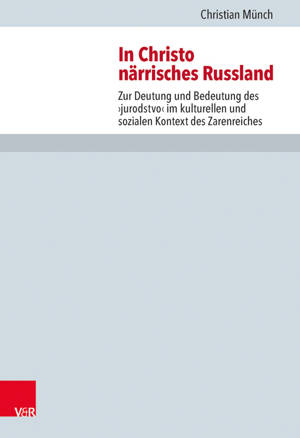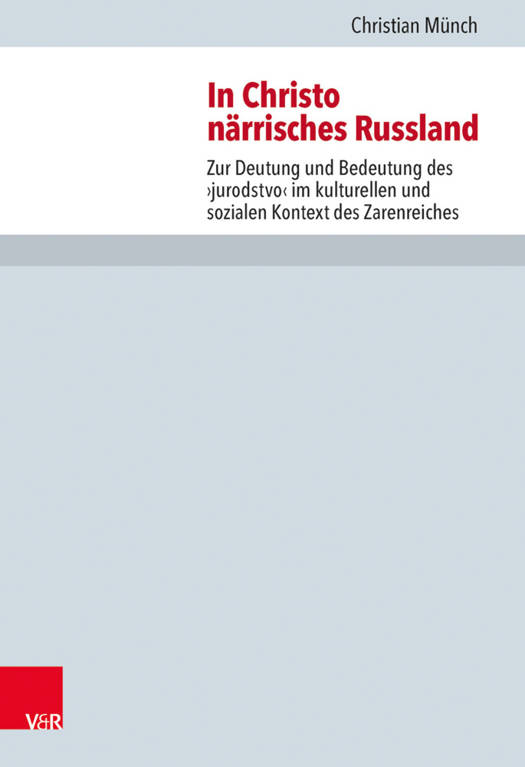
Je cadeautjes zeker op tijd in huis hebben voor de feestdagen? Kom langs in onze winkels en vind het perfecte geschenk!
- Afhalen na 1 uur in een winkel met voorraad
- Gratis thuislevering in België vanaf € 30
- Ruim aanbod met 7 miljoen producten
Je cadeautjes zeker op tijd in huis hebben voor de feestdagen? Kom langs in onze winkels en vind het perfecte geschenk!
- Afhalen na 1 uur in een winkel met voorraad
- Gratis thuislevering in België vanaf € 30
- Ruim aanbod met 7 miljoen producten
Zoeken
In Christo Narrisches Russland
Zur Deutung Und Bedeutung Des Jurodstvo Im Kulturellen Und Sozialen Kontext Des Zarenreiches
Christian Munch
€ 278,95
+ 557 punten
Omschrijving
Yurodstvo (holy foolishness) is widely regarded as a "Russian national phenomenon". This Christian ascetic paradigm, though present in Eastern monastic literature since the fifth century, has gained wider cultural significance only in Russia. Christian Munch chronicles the interpretations of yurodstvo and the multiple religious, social and cultural significance the practice received in Tsarist Russia (1547-1917). Its main temporal focus is on the Imperial Period (18th-19th centuries), when yurodivye (holy fools) were persecuted by church and state, before they were placed in modern literature and theology by poets and thinkers who took notice of them. Based on an extensive corpus of texts ranging from medieval hagiography through legal decrees to modern religious literature and fiction, the study presents yurodstvo comprehensively and in all its facets.
Specificaties
Betrokkenen
- Auteur(s):
- Uitgeverij:
Inhoud
- Aantal bladzijden:
- 569
- Taal:
- Duits
- Reeks:
- Reeksnummer:
- nr. 109
Eigenschappen
- Productcode (EAN):
- 9783525564271
- Verschijningsdatum:
- 11/09/2017
- Uitvoering:
- Hardcover
- Formaat:
- Genaaid
- Afmetingen:
- 165 mm x 239 mm
- Gewicht:
- 449 g

Alleen bij Standaard Boekhandel
+ 557 punten op je klantenkaart van Standaard Boekhandel
Beoordelingen
We publiceren alleen reviews die voldoen aan de voorwaarden voor reviews. Bekijk onze voorwaarden voor reviews.









